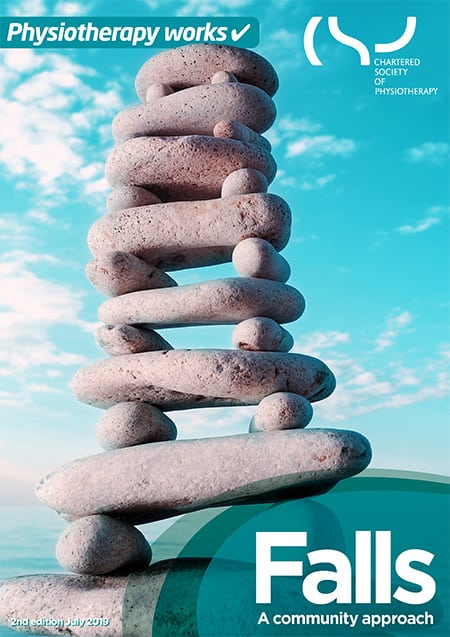Evidence-based briefing paper highlights the importance of physiotherapy in reducing the risk of falls
T
Aimed at physiotherapists, GPs and health commissioners, the evidence-based clinical briefing paper – ‘Physiotherapy works for falls: a community approach’ – highlights how a multifactorial approach to falls assessment and prevention, which includes physiotherapy, can reduce falls in older people.
It recommends that physiotherapy, alongside other interventions like community-based exercise programmes, should be provided to all older people who have fallen or are at risk of falls.
The paper underlines the key issues surrounding falls prevention and provides evidence, statistics and examples on the benefits of physiotherapy services.
Commenting on the launch of the paper, Kate Bennett, Chair of Agile, said: “The importance of producing, and using, documents like this cannot be underestimated when it comes to influencing commissioners and key decision makers around creating effective services that meet public need regarding falls prevention.
“The evidence provided in the briefing is key to making the case for effective service provision.”
By no means a small issue, falls are estimated to cost the NHS over £2.3 billion per year. Furthermore, one third of over 65s fall at least once a year, rising to half for those over 80.
According to the paper, the fear of falling affects approximately 50 percent of older people who have fallen and up to 50 percent who have never fallen.
However, by implementing multifactorial falls risk assessments, the paper says that falls amongst older people can be reduced by almost one quarter.
Physiotherapists can assist with the prevention of falls by detecting early difficulties in clients with movement, strength and balance. This enables them to identify the most appropriate risk factors for individuals, as well as determine an individual’s overall risk of falls.
Additionally, physiotherapists also assess for other causes of falls, such as behavioural and environmental, to pinpoint contributing factors.
The paper adds that exercise programmes involving strength, balance and functional exercises reduce falls when delivered in both group and home-based settings. It suggests that these programmes should be carried out at a minimum dosage of 50 hours, delivered for at least two hours per week, for a minimum of six months.
You can view the full briefing here

